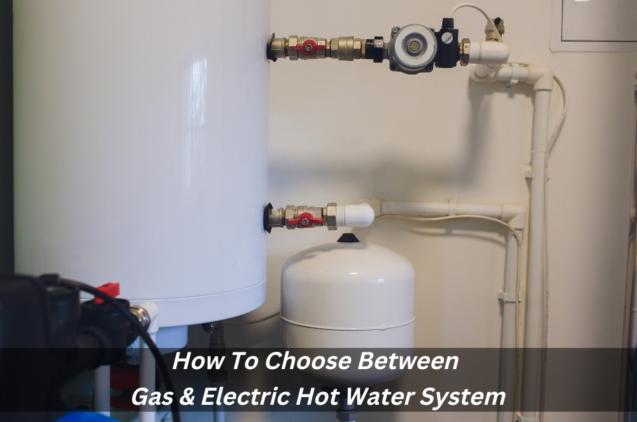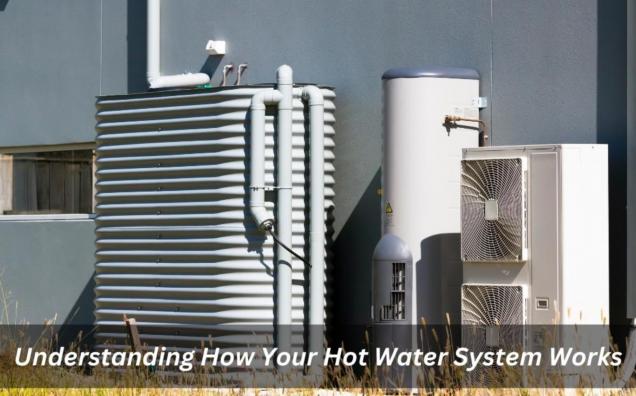
How Often Should You Service Your Home Hot Water Tank?
Hot water tanks are an essential component of any home. A well-maintained tank will provide a continuous supply of hot water and can last for many years. However, regular servicing is important to ensure that the system operates safely and efficiently.
Most water heating systems should be serviced at least once a year, however, this may vary based on the type of system in use. Electric hot water systems, solar hot water systems, heat pumps and gas storage tanks all require different levels of maintenance. During a service check, your plumber will inspect the pressure relief valves, temperature and pressure relief valves, sacrificial anode (metal rod) and other components to ensure they are working correctly. They will also check the water temperature to make sure it is not too high or too low.
Regular servicing helps to prevent costly breakdowns and ensures that your system is running in an energy-efficient manner. It also helps extend the lifespan of your tank by ensuring any small problems don’t become bigger ones down the line. If your current tank isn’t up to standard or you want to upgrade to a more energy-efficient model, then it may be time for a replacement hot water system.
To keep your home safe and your hot water tank running smoothly, remember to schedule regular servicing with a qualified professional every 12 months or as recommended for your specific system type.
Pressure Relief Valve Check-Up
Pressure relief valves are an essential safety feature of any hot water system, designed to prevent dangerous pressure build-up in the tank. As such, they should be checked annually during a service check to ensure they are working correctly and that the pressure is within safe limits.
During a pressure relief valve check-up, your plumber will inspect the valve to make sure it’s not blocked or damaged. They will also use an appropriate gauge to measure the pressure inside the tank and adjust it accordingly if necessary. It is important that this step is done accurately as incorrect pressure levels can lead to an unsafe situation and even cause an explosion.
Your plumber may also perform maintenance on other components such as checking for leaks, inspecting gaskets and replacing any worn parts. Having your hot water system serviced regularly helps to ensure that all components are working correctly and safely so you can enjoy hot water whenever you need it.
Electric Element Checks and Replacements
Electric element checks and replacements are important in ensuring the efficiency and safety of your hot water system. During a service check, your plumber will inspect the electric elements for wear or damage that could affect their performance and safety. If necessary, they will replace them with new ones to ensure that the hot water system is operating at peak performance.
It is also important to regularly check the temperature setting on your electric elements; if it’s too high, it can cause scalding or boiling hot water which can be dangerous. Depending on the type of hot water system you have, your plumber may also check other components such as insulation around the element to make sure there are no gaps or cracks which could lead to energy loss or overheating.
Finally, your plumber may perform a ‘load test’ on the electric elements in order to measure how much power they are using when switched on. This test helps to ensure that they are working efficiently and not wasting energy which would increase your electricity bill unnecessarily. Regular servicing of your electric elements helps to keep them running smoothly and safely so you can enjoy reliable hot water whenever you need it.
Gas Supply Safety Checks
Gas supply safety checks are a critical part of maintaining a safe and reliable hot water system. During a service check, your plumber will inspect the gas supply to make sure it is not leaking or that there are no other issues that could affect its performance or safety. They will also check the pressure in the gas line to ensure that it is within safe parameters for the type of hot water system you have installed.
Your plumber may also check for carbon monoxide emissions from your hot water system, as this can be hazardous if present in high concentrations. They may also inspect any additional components such as pressure relief valves and sacrificial anodes to make sure they are functioning properly and not causing any problems with your gas supply.
Finally, your plumber may recommend energy-efficient upgrades to your hot water system such as replacing an old storage tank with a new continuous flow model or switching from an electric hot water system to a heat pump or solar model. Regular servicing and safety checks of your gas supply will help keep you safe while ensuring that your hot water system is operating at peak efficiency so you can enjoy endless hot showers without worrying about running out of hot water!
Quality of Water Being Used for Tank Fill-up
The quality of the water used to fill up your hot water tank is critical to ensuring that it continues to operate safely and efficiently. Regularly check the quality of the water being supplied to your tank, as impurities or contaminants can build up over time and cause problems with your system. Your plumber can provide advice on the best type of filter or purifying system for your particular setup, which will help keep the water clean and free from any debris that could clog pipes or damage components.
It is also important to regularly check the temperature and pressure relief valve on your tank, as this will release excess pressure if it builds up too high. As a general rule, you should aim to have a minimum pressure of 10 psi (pounds per square inch) in order to ensure optimum performance from your hot water system. If you notice any changes in your tank's performance or detect an unusual smell coming from it then you should contact a qualified technician immediately for assistance.
Regular servicing and maintenance of your hot water system will help ensure that it runs safely and efficiently for many years to come. By monitoring the quality of the water being supplied to it, checking all safety valves, and keeping an eye out for any potential issues, you can rest assured that you'll always have a steady supply of hot water available at home!
Best Practices For At-Home Servicing of Hot Water Tanks Household Size Considerations
When it comes to servicing your home hot water heater tank, it is important to consider the size of your household and the amount of hot water you use. This will help determine how often you should service and maintain your system. Generally speaking, if there are more than four people in the house, then you may need to service your system more frequently – every two or three years – whereas households with fewer people may only need a service once every five years.
It is also important to keep an eye on any potential problems with the system such as leaks, corrosion or other issues that could indicate a need for servicing sooner than planned. Additionally, if you have recently installed a new hot water tank, it is recommended that you have it serviced after one year of operation in order to ensure that everything is functioning correctly. Regular servicing and maintenance can help extend the life of your hot water tank and ensure optimal performance at
How To Locate a Professional Service Technician
When it comes to servicing your home hot water tank, it is important to locate a qualified and reputable professional service technician. The most reliable way to find a qualified service technician is by asking for recommendations from friends and family. Additionally, many local plumbing stores can provide advice on which companies they recommend for servicing and installation of hot water tanks.
Furthermore, online reviews and ratings of service technicians can be helpful in finding someone who is experienced and trustworthy.
Once you have identified some potential service technicians, it is important to check their qualifications, certifications, and insurance coverage. Ensure that the technician has experience in servicing the specific type of hot water system you own as well as any additional components such as pressure relief valves or solar systems. Finally, inquire about the cost of services before scheduling an appointment so that you know what to expect beforehand. By taking these steps when locating a professional service technician, you can rest assured that your home’s hot water tank will be serviced properly and efficiently.
Conclusion
When it comes to servicing your home hot water tank, it is important to ensure that you are using a qualified and experienced hot water service technician. Doing so will not only help to guarantee that the job is done properly but also ensure that any issues with your hot water system can be identified and addressed before becoming a major problem. Furthermore, regularly servicing your hot water system can help maintain the efficiency of the unit, reduce energy costs, and extend its lifespan. By taking the time to locate an experienced service technician for regular servicing of your home’s hot water tank, you can rest assured that your system is running as efficiently and safely as possible.



